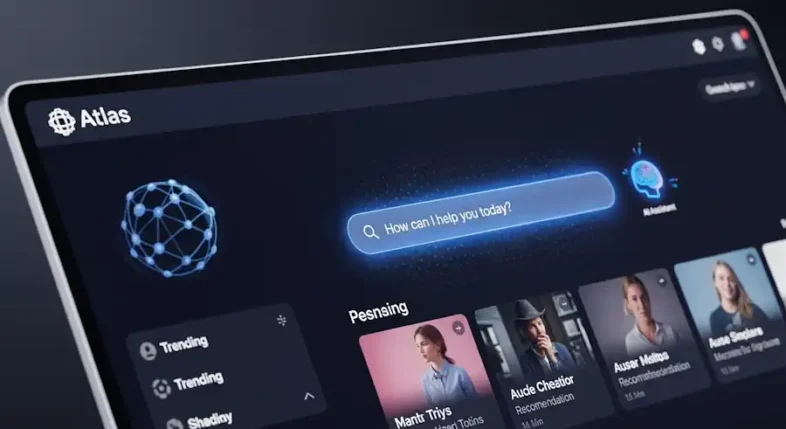OpenAI has entered the browser market with Atlas, an AI-powered application built around ChatGPT that aims to reimagine how people search, read, and complete tasks online. The launch positions OpenAI in more direct competition with Google Chrome and other Chromium-based browsers, with an emphasis on conversational interactions and task automation.
Table of Contents
ChatGPT Integrated into the Page
Atlas embeds a persistent ChatGPT sidebar that can summarize articles, compare information across tabs, extract data from a page, and rewrite passages on request. The assistant understands page context, so users can ask natural questions about what they are viewing without copying text into a separate tool.
The browser is debuting on macOS, with Windows, iOS, and Android versions planned. The goal is to make AI assistance available during everyday browsing rather than as a separate destination.
Agent Mode for Hands-on Help
A preview feature called agent mode allows ChatGPT to carry out multi-step tasks inside the browser, such as researching trips, comparing products, or filling out forms. Access is rolling out to paid ChatGPT tiers first, with broader availability expected after initial testing.
OpenAI frames agent mode as an evolution of earlier assistants, focusing on reliability and clear user oversight. Users can review actions and results before committing changes, which is intended to reduce errors while still saving time.
Privacy Controls and Memory Settings
Atlas includes privacy settings that let people control what the assistant remembers and how data is used. Browsing data is not used to train models by default, and a memory option can be paused or turned off. These controls are central to OpenAI’s pitch that Atlas can be useful for research and work while respecting user preferences.
Competitive Pressure on Incumbents
The release intensifies competition among AI-enhanced browsers from established players and startups. Analysts note that Atlas could shift how search traffic flows if users rely more on in-context answers and automated tasks. Chrome’s scale remains significant, yet Atlas underscores how quickly AI features are becoming core to the browsing experience.
What’s Next
OpenAI plans to expand platform support and deepen integrations with its broader product lineup. Developer extensions and APIs are expected to bring specialized workflows into the sidebar, which could turn Atlas into a hub for AI-assisted productivity across the web.

